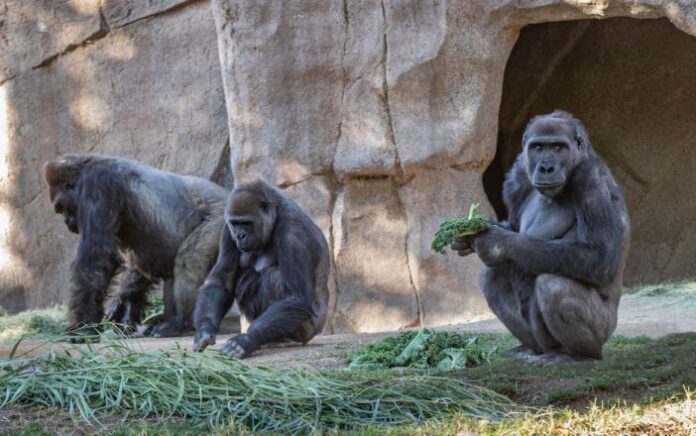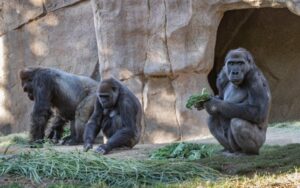Infection believed to have been passed by member of zoo’s care team who had virus

Two captive gorillas at the San Diego Zoo have tested positive for COVID-19 after falling ill, and a third gorilla appears also to be symptomatic, California’s governor said on Monday.
The cases are believed to be the first known cases among such primates in the world.
The park’s executive director, Lisa Peterson, told the Associated Press on Monday that eight gorillas that live together at the park are believed to have the virus and several have been coughing.
It appears the infection came from a member of the park’s wildlife care team who also tested positive for the virus but has been asymptomatic and wore a mask at all times around the gorillas. The park has been closed to the public since December 6 as part of California’s lockdown.
Veterinarians are closely monitoring the gorillas and they will remain in their habitat at the park, north of San Diego, Ms Peterson said. For now, they are being given vitamins, fluid and food but no specific treatment for the virus.
“Aside from some congestion and coughing, the gorillas are doing well,” Ms Peterson said.
While other wildlife has contracted the coronavirus from minks to tigers, this is the first known instance of transmission to great apes and it is unknown if they will have any serious reaction.

London zoos have introduced strict social distancing rules to protect animals, including great apes and monkeys.
Wildlife experts have expressed concern about the coronavirus infecting gorillas, an endangered species that share 98.4 per cent of their DNA with humans and are inherently social animals.
The gorillas infected at the San Diego safari park are western lowland gorillas, whose population has declined by more than 60 per cent over the past two decades because of poaching and disease, according to the World Wildlife Fund.
The safari park tested the troop of gorillas after two apes began coughing on January 6. The test results were confirmed by a laboratory at the US Department of Agriculture.

Zoo officials are talking to experts who have been treating the coronavirus in humans in case the animals develop more severe symptoms. They will remain together since separating them could be harmful to the gorillas that live in tight-knit groups.
“This is wildlife, and they have their own resiliency and can heal differently than we do,” Ms Peterson said.
The safari park on Monday added new precautionary measures for its staff, including requiring face shields and eye goggles when working in contact with the animals.
The Telegraph



